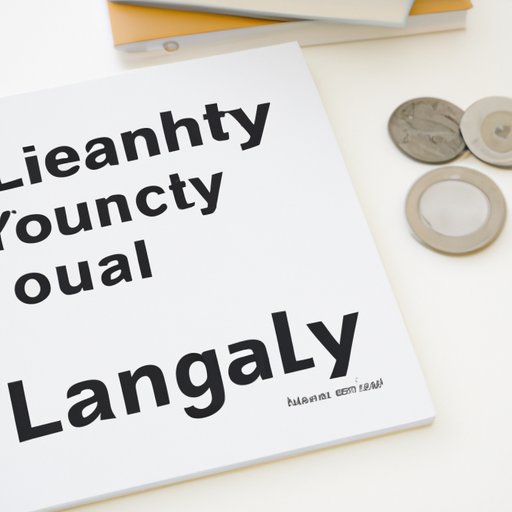Introduction
Financial literacy is an important skill that everyone should possess in order to manage their finances effectively. It is defined as the ability to understand and use various financial skills, such as budgeting, investing, banking, and credit management. Financial literacy involves understanding basic financial concepts, utilizing financial products and services, and applying financial knowledge to make informed decisions.
Exploring the Basics of Financial Literacy
In order to become financially literate, it is important to comprehend basic financial concepts such as income, expenses, assets, liabilities, investments, and insurance. Understanding these concepts helps individuals to create a firm foundation for their financial future. Additionally, it is beneficial to understand the different types of financial products and services available, such as savings accounts, stocks, bonds, mutual funds, and credit cards.
Once individuals have developed a basic understanding of financial concepts and products, they can begin to apply their knowledge to make informed financial decisions. This includes learning how to budget, save, invest, and use credit responsibly. Additionally, individuals should be aware of the various taxes, fees, and regulations that apply to their finances.
The Benefits of Financial Literacy
By understanding basic financial concepts, utilizing financial products and services, and applying financial knowledge, individuals can reap many benefits. These include improved money management skills, increased financial security, and enhanced creditworthiness.
Improved money management skills can help individuals to better control their spending and save more money. Increased financial security can provide peace of mind knowing that there are funds available for unexpected expenses or emergencies. Enhanced creditworthiness can lead to better interest rates on loans and other financial products.
Research conducted by the Global Financial Literacy Excellence Center (GFLEC) at George Washington University has found that “individuals who receive financial education are more likely to report having emergency savings, to use credit wisely, and to demonstrate other positive financial behaviors.”

Tips for Improving Financial Literacy
Individuals who want to improve their financial literacy can take advantage of the various resources available. These include books, websites, magazines, and classes. Additionally, individuals should develop a budget, set financial goals, and monitor their progress. This will help them to stay on track and reach their financial goals.
It is also important to understand common misconceptions about financial literacy. Many people believe that it is only relevant to those with high incomes, that it is too difficult to learn, or that it is not necessary. In reality, financial literacy is beneficial for everyone, regardless of their income level, and it is not overly complicated to master.

How Financial Literacy Can Help You Achieve Your Goals
Financial literacy can help individuals to achieve their financial goals, such as building wealth, managing debt, and planning for retirement. By understanding basic financial concepts, utilizing financial products and services, and applying financial knowledge, individuals can make informed decisions that will help them to reach their financial goals.
For example, individuals can use financial literacy to research and compare different investment options, develop strategies for paying off debt, and create a retirement plan. Additionally, they can use financial literacy to understand how taxes, fees, and regulations affect their finances.

Financial Literacy in the Workplace
Financial literacy is not just important for individuals; it is also beneficial for employers. Employers who provide financial literacy training to their employees can benefit from increased productivity, reduced costs, and improved morale. Employees, on the other hand, can benefit from improved money management skills, increased financial security, and enhanced creditworthiness.
Financial Literacy Resources Available
There are numerous resources available to help individuals improve their financial literacy. Government agencies, such as the Department of Treasury, offer educational materials and programs. Non-profit organizations, such as the National Endowment for Financial Education, provide resources and tools. Financial institutions, such as banks and credit unions, may also offer financial education programs.
Conclusion
Financial literacy is an important skill for everyone to possess. It involves understanding basic financial concepts, utilizing financial products and services, and applying financial knowledge. There are numerous benefits to being financially literate, including improved money management skills, increased financial security, and enhanced creditworthiness. Additionally, there are many resources available to help individuals improve their financial literacy.
(Note: Is this article not meeting your expectations? Do you have knowledge or insights to share? Unlock new opportunities and expand your reach by joining our authors team. Click Registration to join us and share your expertise with our readers.)
